Black Lives Matter And Pride Are Intrinsically Linked. The Black Trans Community Have Done So Much For
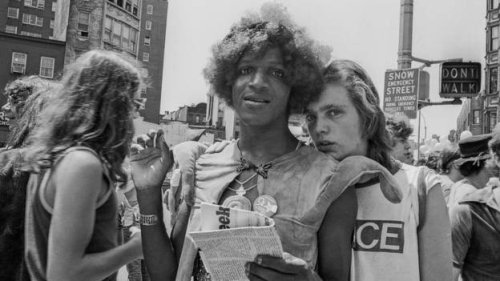
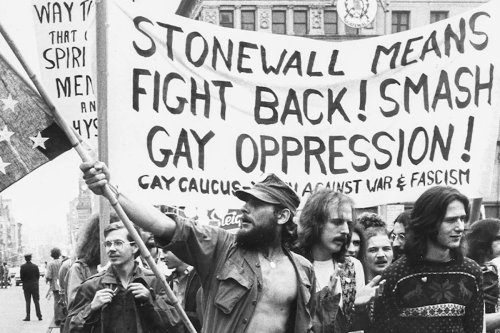
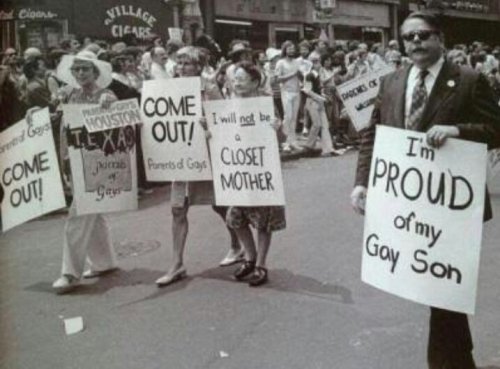
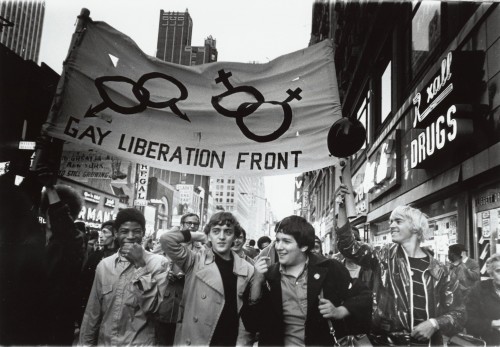
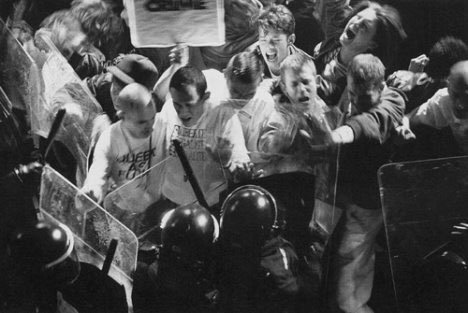
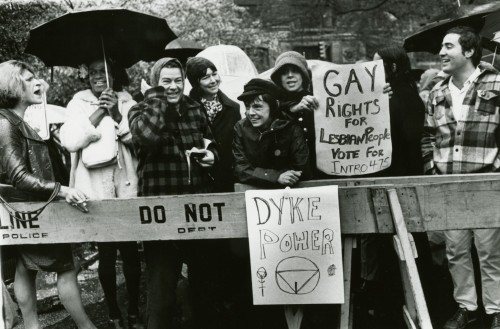
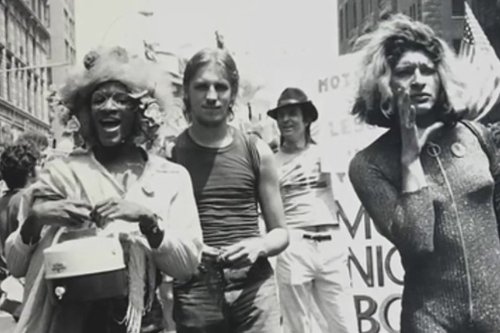
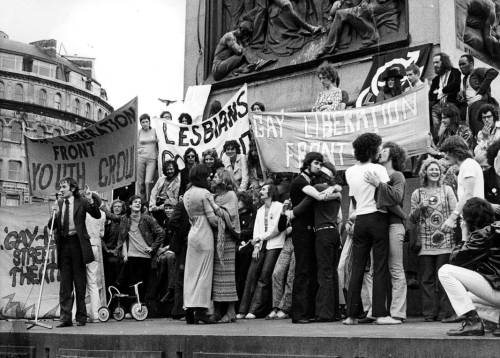
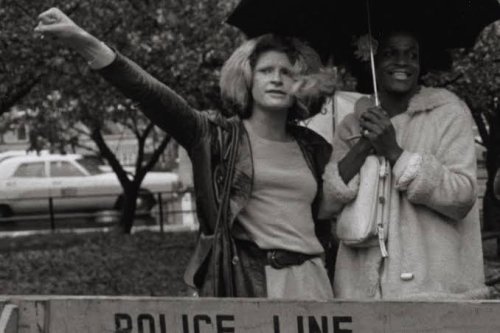
black lives matter and pride are intrinsically linked. the black trans community have done so much for us, we owe it to them to not forget their movement this month. without black lives, there would be no pride. black lives matter, today and always
More Posts from Jolzr2 and Others
sometimes you’re hit with a friendly realization that yes, life is good. you have your comfort characters and you have archive of our own. life is actually beautiful
you’re telling me there are people who listen to music and DON’T use it as the soundtrack for the intense cinematic daydream plot they’ve always got playing in the back of their head???
just a heads up to my fellow writers out there that AO3 is currently fighting off bots commenting on people’s works to tell them that AO3 will delete their fics “due to the works being deprecated”, and the deletion will affect their accounts unless the authors delete the fics themselves first. IT IS A SCAM. AO3 will NOT delete your works. please do NOT fall for these bots!
I’ve been told the reason why these bots are doing this is due to copyright infringement issue where they’re trying to steal your works (possibly to train AI but this is just a guess) ‼️‼️‼️and once you deleted your fics, it will be either very difficult or impossible for you to claim ownership of your own fics when they were already deleted.‼️‼️‼️
a reminder that AO3 will never contact you through your comments section (in case they claim to be one of the moderators). AO3 will only contact you through your email address which you use to register your account, and it will be from AO3’s official handle. not some sketchy ass @
so if you get a comment telling you you should “delete your works to protect your account because AO3 is doing blah blah blah” report that comment. don’t delete your works.
PLEASE DO NOT FALL FOR THESE SCAM.
AO3 IS NOT DELETING WORKS.
DO NOT DELETE YOUR WORKS JUST BECAUSE SOMEONE CLAIMS THEY KNOW SOMETHING.
The Glass Closet: Taylor Swift, Chely Wright, Speculation, and the Industry That Keeps Artists in the Dark
For nearly two decades, Taylor Swift has orchestrated the art of reinvention—from a fresh-faced country prodigy to a global pop powerhouse, from America’s golden girl to a self-proclaimed anti-hero. Each era has been a transformation, each reinvention a shield. Yet, beneath the carefully curated personas, the shifting aesthetics, and the highly publicized relationships, one unspoken question lingers: Who is Taylor Swift, really?
The theory that Swift is queer and closeted—the heart of the “Gaylor” conversation—isn’t about unfounded gossip. It’s about the systems that shape an artist’s image, the forces that dictate what is and isn’t acceptable, and the very real cost of authenticity in an industry that thrives on marketability over truth.
To understand this, we have to look beyond Swift herself. We have to examine country music’s history of closeting artists like the fallout that followed Chely Wright’s coming out and the impossible balancing act Swift has performed for years.
This is a story about control, coded storytelling, and the glass closet Taylor Swift has spent her career trying to break free from—without ever shattering it completely. It's a story of paving the path for a brighter, louder, more colorful future because one thing is for sure...
SHADE NEVER MADE ANYBODY LESS GAY!

The Early Aughts + Country Music Stardom: A Foundation Built on Silence
Country music has long been one of the most traditionally conservative genres in the music industry. With a core audience rooted in Middle America values, the genre has historically upheld white, heterosexual, Christian narratives as the foundation of its storytelling.
Even in 2025, there are only a handful of openly queer country artists, and most of them struggle to receive mainstream recognition. Artists like Brandi Carlile, T.J. Osborne (Brothers Osborne), and Brandy Clark have helped pave the way, but country radio still hesitates to fully embrace LGBTQIA+ voices.
In this world, being an openly queer artist isn’t just risky—it’s career-ending.
And no one embodies that reality more than Chely Wright.
Chely Wright: A Warning from the Closet
In 2010, Chely Wright became the first mainstream country artist to come out as lesbian and it destroyed her career.

Wright was a hitmaker, with #1 songs and major industry recognition. She had everything an artist could want—until she told the truth.
Country radio blacklisted her.
Venues stopped booking her.
Her album sales tanked.
The industry that once celebrated her pretended she never existed.
Her story became a cautionary tale—a stark warning that country music does not embrace queer artists. It erases them.
By 2010, Taylor Swift was already a superstar. If she was questioning her sexuality—or even fully aware of it—she had already been placed in a carefully controlled box.
Unlike Wright, Swift’s departure from country music wasn’t an exile—it was an escape. But that escape wasn’t just about genre. It was about control. It was about building a world where she could reinvent herself while keeping parts of her identity just out of reach.
A Different Perspective: Chely Wright’s Discomfort with Speculation
When The New York Times published an essay on the Gaylor theory, I was surprised to find that Chely Wright herself expressed discomfort with the way Taylor Swift’s sexuality is discussed in public. Wright called the piece “awful” and “triggering”, criticizing the newspaper for engaging in speculation. Given that Chely’s story has long been a major point of discussion in the Gaylor community, her response was jarring. At first, it made me question whether using her experience as a lens for understanding Taylor’s career was appropriate.
But upon deeper reflection, her reaction makes sense. Chely Wright’s coming-out experience was deeply traumatic—she spent years hiding, lying, and carefully constructing a false image to survive in country music. And when she finally told the truth, her career collapsed overnight. For Wright, the mere act of publicly discussing another artist’s sexuality—whether as support or analysis—might feel like the same kind of external pressure she once faced.
However, there is an important distinction: The Gaylor conversation is not about forcing a label onto Taylor Swift. It’s about analyzing the subtext Swift has deliberately embedded in her work. If Taylor wasn’t queercoding her music, this conversation wouldn’t exist in the first place.
It’s also crucial to recognize that the industry forces that once silenced Wright are the same forces that shaped Swift’s career. While Wright may reject this discussion entirely, that doesn’t change the reality that Taylor’s work is filled with coded storytelling—suggesting she is navigating the same strict boundaries but in a different way.
Wright’s response to the op-ed highlights a larger cultural question: Why does queerness still have to be treated as a secret, while speculation about straight relationships is encouraged?
Why Is Speculating About Queerness Seen as Different?
One of the biggest criticisms of the Gaylor theory is that it’s “invasive” to speculate about Taylor Swift’s sexuality. But where is the line between analyzing queer themes in her work and being inappropriate? Why do Swifties who push back against this theory have no problem speculating about her relationships with men?
This is where the double standard comes into play.
Taylor Swift fans have spent years digging into her personal life—analyzing lyrics, finding Easter eggs, and debating which songs are about which boyfriend. Entire media cycles have been built on this:
Is "All Too Well" about Jake Gyllenhaal?
Is she secretly engaged? Was she secretly married?
Was "You Belong With Me" about Joe Jonas?
These questions are not only accepted— they're expected.
But when Gaylors apply the same level of analysis through a queer lens, suddenly, it’s labeled “invasive” and “harmful.” The message is clear: It’s only okay to speculate if the answer is straight.
To me, this is an outdated view to force straightness onto someone while also claiming that sexuality is a spectrum. Given Taylor’s layered storytelling, it feels necessary to allow her to exist on that spectrum—where maybe some of her stories are not what they seem.
As we know, Taylor Swift spent the early years of her career operating under the rigid gender norms of country music, a world where women were expected to sing about heterosexual romance, faith, family, and small-town nostalgia. But as her success grew, so did her desire for creative control—and possibly, her need to carve out a space where she could express herself more authentically, even if only in coded ways.
Her transition to pop wasn’t just about breaking genre boundaries—it was about escaping Nashville’s conservative grip and stepping into a world where reinvention, subtext, and ambiguity could thrive. And she made that clear from the very first song on 1989.

“Welcome to New York”: Taylor’s Break from Nashville & Living In Screaming Color
"You can want who you want / Boys and boys and girls and girls."
This wasn’t just a throwaway lyric. It was the loudest queer-coded statement she had ever made—and it opened the album that marked her escape from country music’s restrictions.
This is also the era that she gave us New Romantics and Out of the Woods with lyrics like, "The rest of the world was black and white but we were in screaming color."
Many Gaylors believe that Red (2012) was already a queer-coded album, with songs about a secret relationship—possibly with Dianna Agron—hidden behind PR relationships with men. But in 2014, she took it a step further:
She stopped centering men in her music.
She built a “girl squad” narrative that celebrated female friendships—but felt, at times, like something more.
She became more private—hiding her personal life while crafting an ultra-public, ultra-marketable persona.
If Red was about testing boundaries, 1989 was about reinvention as a shield. From this moment forward, Taylor would never again present her personal life without layers of control.
Reinvention as Survival: The Dual Taylors
Swift has reinvented herself with every era, but this reinvention isn’t just about artistic evolution—it’s been a survival mechanism.

She constantly presents two versions of herself—the one the public sees, and the one hidden beneath the surface.

This is the essence of the glass closet—where an artist can leave clues, drop hints, and tell the truth without ever being forced to say it outright.
Why Taylor Swift’s Closet Is Different
Unlike Chely Wright, Swift never had to lose her career over her sexuality—but that’s because she never let it become the story in the first place. The longer she hints, codes, and subtextually confesses, the veil gets thinner.
When she says “ME! out now” on Lesbian Visibility Day, people still think it’s a coincidence. When she plays "Maroon" on Karlie's birthday, it doesn't mean anything. Somehow, even when a song with such an obvious rhyme scheme as "The Very First Night" all but hits you over the head alluding to a female pronoun in a love song, Swifties turn the other cheek and deny the obvious.
She has spent 20 years writing about love—but to the general public, that love has only been for men. For those who see through the lines, she has been communicating her real experience the entire time.
Swift’s public relationships always seem to appear when speculation about her queerness reaches a peak. The Summer of Lover 2019? Joe Alwyn’s presence is reinforced. The Midnights era? Enter Matty Healy, a quick PR cycle that fizzled just as fast as it began. And now, in 2024, with The Tortured Poets Department drenched in queer themes? Travis Kelce is front and center. Whether these relationships are real, exaggerated, or entirely contractual, they always serve a purpose—to keep the glass closet from completely shattering.
The Power of Subtext in the Mainstream
In many ways, Taylor has done something radical—she’s embedded queerness into mainstream pop culture in a way that allows it to exist without being outright rejected.
Before her, queerness in the industry was often either completely hidden or presented in a hypersexualized, rebellious way that still played into the male gaze (see: Madonna and Britney’s VMAs kiss, Katy Perry’s “I Kissed a Girl”).
Taylor’s approach is different. Her queerness isn’t a spectacle—it’s woven into love songs, metaphors, and heartbreak anthems, allowing it to be as deeply felt and widely consumed as straight narratives.
For younger artists, this has cracked open the door.
Queer Artists Who Have Benefited from the Shift
Artists who emerged in the post-Taylor pop landscape now have far more room to exist as their authentic selves. Many don’t have to code their queerness the way Taylor does, and that’s partially because her queer-coding forced the industry to acknowledge that queer narratives could be commercially successful.
Examples of artists who have benefited from this shift include:
Kelsea Ballerini – A country-pop artist and close friend of Taylor Swift, Kelsea has been a vocal LGBTQIA+ ally, advocating for inclusivity in a traditionally conservative genre. While not publicly queer, her embrace of queer narratives and shift toward pop mirrors Swift’s own path, signaling a slow but growing evolution in country music.

Girl in Red – Explicitly queer in both image and lyricism, yet embraced by the same industry that would have never allowed Taylor to be this open in 2006.

MUNA – An openly queer pop band that has been able to build mainstream success without needing to obscure their identities.

Billie Eilish – After coming out as queer in 2023, Billie has embraced her identity without industry pushback, reflecting the shifting landscape Taylor helped shape. Her openness marks a new era where pop stars no longer need to rely on subtext or plausible deniability to exist authentically.
Chappell Roan – The most recent example of a queer artist who is making waves in the pop scene—heavily inspired by the theatrical elements of Taylor Swift’s songwriting and world-building.

Would any of these artists have been able to flourish in the mainstream ten years ago? Unlikely. Taylor’s massive, industry-defining career—and the queer interpretations of her work that have never been shut down entirely—helped normalize the idea that queerness doesn’t have to be a commercial risk.
The Unfinished Revolution: Taylor’s Influence on the Future of Queer Storytelling
Taylor Swift’s position in pop culture is unique—she is arguably the most famous person in the world, yet her true identity remains one of the most debated subjects in modern music.
This paradox—existing in a glass closet while simultaneously paving the way for others to live openly—is what makes her influence so undeniable.
Taylor Swift may never fully break out of the closet herself—but she has already blown the door open for others to walk through.
She has spent two decades bending the rules of the industry, proving that queer-coded storytelling is not just marketable but deeply resonant. The next generation of artists doesn’t have to bend the way she did—they can step into the spotlight and tell their stories without hiding behind mirrors and metaphors.
Taylor may be trapped in the glass closet, but the industry she reshaped will never be able to shut the door again.
LONG LIVE THE WALLS WE CRASHED THROUGH!

Here’s to 2023, a year of as many little courageous kindnesses as possible. ♥️
Lorna Wu took a song that was created between mother and child, added her own message, turned it into a protection spell and sang it with millions to have it take effect and made sure it turned onto a hit classic so that people will listen and sing it for decades, all to continuously protect her daughter after she herself would die of the curse that took her mother and is fated to take her and her daughter AND IT WORKED. She thought she couldn't protect her daughter, couldn't break the spell but she did protect her daughter; in the most beautiful way too. Millions were singing about her love for her daughter and those millions were constantly protecting Alice for years. I'm actually feral this show is so insane. There's so much love in this show (and so much tragedy) I could talk about each character and everything else forever
Learning a language is so wild. Beforehand the language is just some kinda interesting sounding gibberish and squiggles on a page. Just totally opaque. Might as well be Linear A. Afterward it’s like the most obvious thing in the world. Totally self-evident. Of course those words mean those things everybody knows that.
reasons to write fanfiction (I'll start):
share a cool scene that popped into your head
evoke a particular emotion the canon makes you feel
song made you think of a character or idea from canon
make people feel the same way about a character you do
make dolls kiss for fun
explore ideas the canon hints at but doesn't do anything with
traumatize characters and make them suffer
coddle characters and let them rest
had an insane idea for a crack ship and now everyone needs to know
the author of the canon was wrong and must be fixed
use familiar characters to explore your own ideas and plotlines
canon is too short and you need to wallow in the universe of the story

I can't hear you.
-
 vincentvangoghs liked this · 3 weeks ago
vincentvangoghs liked this · 3 weeks ago -
 lostaccountsposts liked this · 4 weeks ago
lostaccountsposts liked this · 4 weeks ago -
 jojowantsit liked this · 4 weeks ago
jojowantsit liked this · 4 weeks ago -
 metamorphicmuse liked this · 1 month ago
metamorphicmuse liked this · 1 month ago -
 jupitermarz01 reblogged this · 1 month ago
jupitermarz01 reblogged this · 1 month ago -
 jupitermarz01 liked this · 1 month ago
jupitermarz01 liked this · 1 month ago -
 molotoph reblogged this · 1 month ago
molotoph reblogged this · 1 month ago -
 et-iterum liked this · 1 month ago
et-iterum liked this · 1 month ago -
 theyearofhalloween reblogged this · 1 month ago
theyearofhalloween reblogged this · 1 month ago -
 prettyboyblog liked this · 1 month ago
prettyboyblog liked this · 1 month ago -
 bewarethesnallygaster liked this · 1 month ago
bewarethesnallygaster liked this · 1 month ago -
 ronandreams liked this · 1 month ago
ronandreams liked this · 1 month ago -
 kalia-taylorsversion liked this · 1 month ago
kalia-taylorsversion liked this · 1 month ago -
 willowwindss reblogged this · 1 month ago
willowwindss reblogged this · 1 month ago -
 poilupeludo liked this · 1 month ago
poilupeludo liked this · 1 month ago -
 jenuinelycurious liked this · 2 months ago
jenuinelycurious liked this · 2 months ago -
 strange-dusty-alien liked this · 2 months ago
strange-dusty-alien liked this · 2 months ago -
 rattoenailclippings reblogged this · 2 months ago
rattoenailclippings reblogged this · 2 months ago -
 rattoenailclippings liked this · 2 months ago
rattoenailclippings liked this · 2 months ago -
 northboundbeard liked this · 2 months ago
northboundbeard liked this · 2 months ago -
 blinking182tim2 liked this · 3 months ago
blinking182tim2 liked this · 3 months ago -
 hagelliot reblogged this · 3 months ago
hagelliot reblogged this · 3 months ago -
 lucas-tty reblogged this · 3 months ago
lucas-tty reblogged this · 3 months ago -
 headstructure reblogged this · 3 months ago
headstructure reblogged this · 3 months ago -
 aghostinlosangeles liked this · 3 months ago
aghostinlosangeles liked this · 3 months ago -
 grow-and-decay liked this · 3 months ago
grow-and-decay liked this · 3 months ago -
 char-toons liked this · 3 months ago
char-toons liked this · 3 months ago -
 beforehollywood liked this · 3 months ago
beforehollywood liked this · 3 months ago -
 ab0ve-earth-bel0w-sky reblogged this · 3 months ago
ab0ve-earth-bel0w-sky reblogged this · 3 months ago -
 ab0ve-earth-bel0w-sky liked this · 3 months ago
ab0ve-earth-bel0w-sky liked this · 3 months ago -
 astylos-theburntrat liked this · 3 months ago
astylos-theburntrat liked this · 3 months ago -
 hellsapopping liked this · 3 months ago
hellsapopping liked this · 3 months ago -
 embraceyourcringe liked this · 3 months ago
embraceyourcringe liked this · 3 months ago -
 severeprincesheep reblogged this · 3 months ago
severeprincesheep reblogged this · 3 months ago -
 visualstatic101 liked this · 3 months ago
visualstatic101 liked this · 3 months ago -
 aereed reblogged this · 3 months ago
aereed reblogged this · 3 months ago -
 fiataeterna reblogged this · 3 months ago
fiataeterna reblogged this · 3 months ago -
 jeffrothehomo reblogged this · 4 months ago
jeffrothehomo reblogged this · 4 months ago -
 queerhistorymajor reblogged this · 4 months ago
queerhistorymajor reblogged this · 4 months ago -
 coffeeovercoke reblogged this · 4 months ago
coffeeovercoke reblogged this · 4 months ago -
 mlktooth liked this · 4 months ago
mlktooth liked this · 4 months ago -
 sjd2012 liked this · 4 months ago
sjd2012 liked this · 4 months ago -
 kawaiifantasma liked this · 4 months ago
kawaiifantasma liked this · 4 months ago -
 chakraheart521 liked this · 4 months ago
chakraheart521 liked this · 4 months ago -
 full-time-femboy reblogged this · 4 months ago
full-time-femboy reblogged this · 4 months ago -
 full-time-femboy liked this · 4 months ago
full-time-femboy liked this · 4 months ago -
 dittohasablog reblogged this · 4 months ago
dittohasablog reblogged this · 4 months ago -
 dittohasablog liked this · 4 months ago
dittohasablog liked this · 4 months ago










